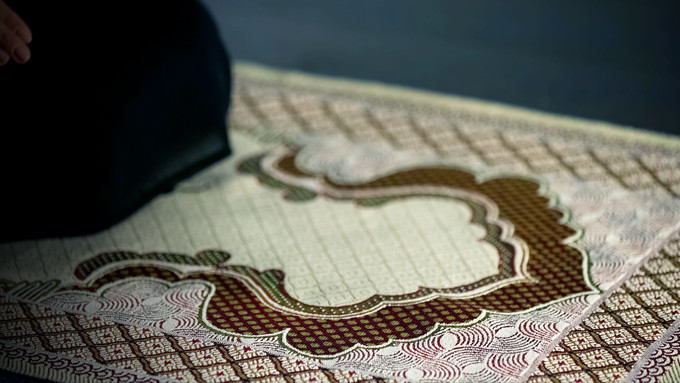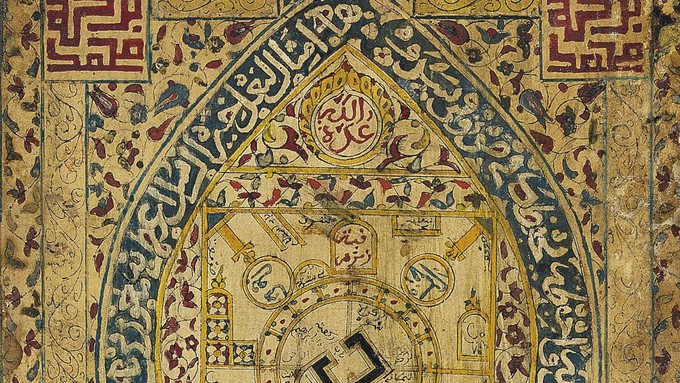A Muslim in Paris: A Jihad Honored By France
Three Americans were awarded France’s highest honour, the Légion d’Honneur medal, for thwarting what appeared to be an attack on a train carrying 500 passengers to Paris. Napoleon Bonaparte established the Légion d’Honneur medal in 1802 for it to be granted to civilians and soldiers for an exceptional service to France. Had it not been for these young men’s quick thinking and courage to act, France would be in mourning over carnage instead of awarding such a distinction.
Given the current Islamophobic climate in France, and the allegations surrounding the gunman having ties or being at least inspired by ISIS, it may come as a surprise that France awarded the Grand Cross of the Légion d’Honneur to one of the most prominent Muslim figures in recent history, and a man who resisted French colonization using military force. In 1860 the French government bestowed this prestigious distinction onto Emir Abdelqadir El Djezairi, an Algerian Muslim scholar and Sufi master who was at one point thrust into leading an armed resistance against the French invaders.
Emir Abdelqadir was born in 1807 to a father who descended from the lineage of Al-Hasan ibn Alī ibn Abī Tālib. His early education was comprehensive, including memorization of the Quran and mastery of its related disciplines, study of Islamic law based on the Maliki school, Hadith, theology, Arabic, and philosophy. When he completed his study he assumed a teaching position where he focused on teaching the Hadith collections of Bukharī and Muslim.
In 1830 he witnessed the French invasion of his country, which the Ottoman ruler of Algeria surrendered to at the time. However, the Algerian population chose the path of resistance. The Emir’s father, Muhyi Ad’Deen Al-Hasanī, was elected by the people of his region to be the leader of their army. Muhyi Ad’Deen’s victories led the people to ask him to assume their political leadership as well. However, instead of accepting, he redirected it to his son who has been accompanying him since his young age. This was the moment at which Abdulqadir arose to prominence. When given the title “Sultan”, he rejected it and accepted the lesser prestigious “Emir” in 1832. In his acceptance speech he stated:
“I have accepted the pledge of allegiance [of the people] and this position despite not having any inclination to it, hoping that in doing so I could become a mediator that unites the word of Muslims and lift off their infighting and differences. This is in order to bring about security, stop actions that go against the purity of the law, protect the land from the enemy, and apply ruling and justice upon the strong and the weak. Know that my ultimate goal is the unity of the Muhammadan religion, establishing the Ahmadan rituals, and upon God is the reliance in all of this.”
After two years of battles, the French government was forced into signing a treaty with Emir Abdulqadir in 1834, in which they recognized him as a ruler over his region. However, this treaty did not last a year before the French government broke its terms and resumed attacks against the Emir. The cycles of signing treaties and breaking them continued while Emir Abdulqadir continued his attempts over a 15 year period to unite the various tribes of his region under one ruling. However, as the case has been throughout much of Islamic history with individuals like Emir Abdulqadir, he was eventually betrayed by battalions of his own people from Marrakesh, and taken prisoner by the French forces and sent to France in 1847. 
As a prisoner in French jails Emir Abdulqadir received much ill treatment from his captors. However, in 1852 Napoleon III, who admired the Emir, freed him after he assumed the ruling duties of the French Empire and asked if Emir Abdulqadir would take France as his home. Emir Abdulqadir refused and travelled east. After several stops he chose to stay in Damascus where he began to teach at the Umayyad Mosque in 1856.
A conflict in 1860 where the Maronite Christians rose up against their Druze rulers began in Lebanon and eventually reached Damascus where a massacre took place. Records indicate that around 20,000 Christians were killed, and 380 Christian villages as well as 560 churches were destroyed. If it were not for Emir Abdulqadir, the number of dead Christians would have been much greater. When the riots took place, the Emir enlisted his followers to defend Christians he sheltered, which included eminent political figures as well as Christian religious orders. Some reports indicate the Emir saved around 15,000 Christians from imminent death. When the riots subsided, Emir Abdulqadir’s role was emphasized and he was recognized and honoured by several states, including Greece, Turkey, and the French government who awarded him its highest medal of honour.
The Beloved ﷺ said, “Support your brother whether he is an oppressor or oppressed.” The Companions responded, “O Messenger of God, we understand how to support an oppressed one, but how do we support an oppressor?” The Beloved ﷺ explained, “You stop him from his oppression.” This Hadith is about principles. One of the most difficult things for people in any group to overcome is their allegiance to each other for the sake of a higher cause. In a way, Islam practiced properly can be viewed as the religion that makes one overcome association with a “religion”.
The actions of Emir Abdulqadir during his time as a ruler in his home land resisting French invaders, as well as during the 1860 conflict when he sheltered Christians signify what motivated him. It was not tribal allegiance to a national or a religious group. It was adherence to the higher principles that he described as Ahmadan. We live in a time today when it is more important than ever to emphasize this point. While the current political climate is providing fertile soil for the rise of groups like ISIS and their like from different sects, it is the duty of Muslims to be evermore conscious of the Ahmadan principles. Otherwise, we can only expect a further descent into the madness of ignorance and violence that we observe today.
Recommended Reading: Commander of the Faithful: The Life and Times of Emir Abd el-Kader by John W. Kiser
Academic Related Articles


Taking the Prophet as Your Spiritual Guide: Celebrating and Passing into the Prophetic Reality
Indifference to the celebration of the Prophet ﷺ denies the community the opportunity to unite upon his character and spirituality, in the face of so much pressure to move away from him. What are the tried and true methods to bring the Prophet ﷺ into our daily lives?
